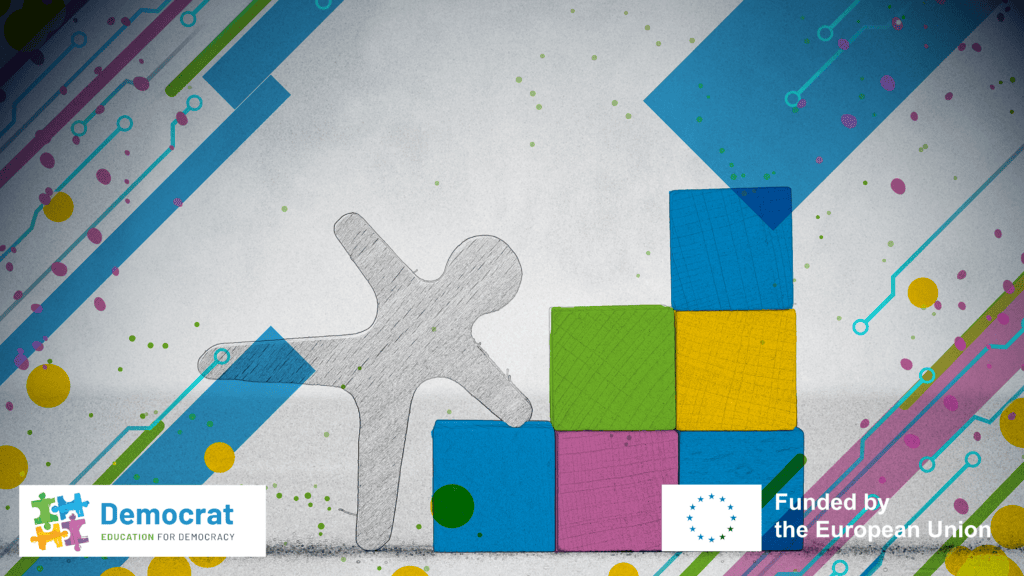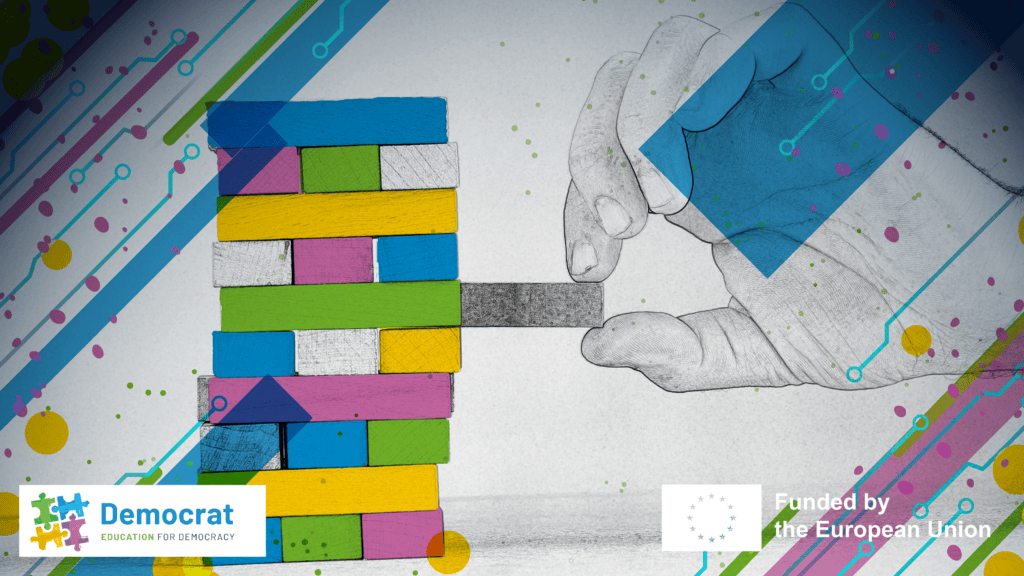Facing Modern Challenges to Democracy: The Need for Education for Democracy

Table of Contents
The Evolving Threats to Democracy
Education for Democracy (EfD) emerges as an essential approach to equip citizens—especially young people—with the knowledge and skills to address these critical challenges and uphold democratic values in today’s interconnected world. Democracy as a political and social order is increasingly under pressure worldwide, facing complex and interconnected challenges. Rising polarization, distrust in science, and the spread of conspiratorial beliefs pose significant threats to democratic values, including liberty, equality, and solidarity. These challenges are compounded by global issues such as climate change, pandemics, and widening economic inequality, which directly impact human security. As these issues intensify, they threaten the very foundations of democratic societies.
New Responsibilities in Democratic Citizenship
Modern democratic citizenship is evolving to include responsibilities not only toward other people and societies but also toward the planet. This global dimension adds environmental consciousness to the values of democracy, underscoring the need for action on pressing issues such as biodiversity loss, climate change, and pollution—particularly plastic pollution. By expanding democratic responsibility to include planetary stewardship, citizens become aware that their actions impact a global community. This notion highlights the urgency of integrating Education for Democracy to foster a citizenry that feels a responsibility not only to their nation but also to the global ecosystem. In this context, education becomes a powerful tool for embedding environmental responsibility within democratic principles.

The Impact of Digital Transformation on Democracy
As digital technology increasingly shapes our lives, it also reshapes democratic engagement. Young people, in particular, navigate a digital landscape that transcends borders, forming virtual communities and engaging in global conversations. However, the rise of digital spaces also brings challenges, such as exposure to misinformation and the risk of online radicalization. The digital dimension of democratic engagement emphasizes the need for Education for Democracy to include digital literacy and critical thinking. This equips citizens with the skills to navigate cyberspace responsibly, engage with reliable information, and build constructive online communities. By incorporating these competencies, EfD prepares citizens to participate meaningfully in digital democracy, promoting positive engagement rather than division.
Education for Democracy as a European Priority
The European Union, with its commitment to democracy as a core value, recognizes that Education for Democracy is crucial for addressing both societal and environmental challenges. While EfD is currently a component of citizenship education across EU member states, it needs greater emphasis and a distinct status to counter rising anti-democratic tendencies. Strengthening EfD ensures that citizens—especially young people—can act responsibly at local, national, and global levels. This approach requires a coherent framework for democratic competencies, aligned with both European and global democratic goals. A standardized EfD strategy across EU countries would enable citizens to develop a shared understanding of democratic principles and address current societal issues more effectively.

Developing Democratic Competencies for the Future
To create a generation that is equipped to address modern challenges, it is essential to design a robust framework of democratic competencies. These competencies guide citizens in addressing societal issues while promoting a sense of agency and capacity for action. Education for Democracy, when supported by a clear and cohesive framework, can serve as a reference point for national and regional educational strategies. This ensures that students not only understand democratic values but also practice them in their communities. By fostering transformative learning, EfD empowers young people to develop democratic agency, giving them the skills to engage with societal issues in meaningful and impactful ways. This investment in democratic education lays the groundwork for a resilient and active democratic society.
A Unified Approach to Strengthen Democracy
In a time of unprecedented challenges to democracy, DEMOCRAT-supported Education for Democracy is essential for building a resilient and engaged citizenry. By equipping citizens with the competencies to act responsibly on local and global stages, EfD fosters a society that values democratic principles and is prepared to address complex social, environmental, and digital challenges. Through coordinated efforts across the European Union, the focus on Education for Democracy can help preserve and strengthen democracy for future generations.